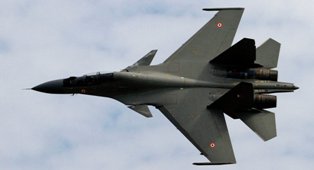Russia and India have already signed several arms contracts worth the equivalent of billions of dollars using rubles and rupees, and have sought other ways to increase trade in national currencies amid concerns in Delhi that Washington could slap sanctions on India for buying Russian-made defence equipment.
Russia and India have devised a new mechanism which will allow payments for multi-billion dollar deference deals to be made using their own national currencies, Bloomberg has reported, citing a Russian source and two Indian sources said to be familiar with the matter.
According to the business newspaper, settlements in rubles and rupees are designed specifically to allow Moscow and Delhi to skirt the Countering America’s Adversaries through Sanctions Act (CAATSA), a 2017 US legislative measure designed to slap severe restrictions on Russia’s ability to sell arms abroad.
The sources told Bloomberg that the new arrangement would facilitate India’s purchase of four Russian Talwar-class guided missile frigates, worth about $2 billion. Late last year, India’s security committee approved the procurement of the frigates, with two of them to be purchased directly from Russia for about $950 million, and two more to be built in India later under a separate deal.
Last October, Russia and India signed a contract worth the equivalent of $5.43 billion, with the deal reportedly inked in rubles. India expects to begin receiving its S-400s in late 2020. In November, media reported that India was also hoping to pay for its Igla-S MANPADS system, worth about $1.5 billion, in rupees. Like the frigate deal, Delhi negotiated to enable some of these systems to be built in India as part of a technology transfer arrangement.
The US has warned that India may be slapped with CAATSA sanctions over Delhi’s arms deals with Russia, but has yet to make good on its threats. Along with India, Washington has repeatedly threatened Turkey over its decision to buy Russia’s S-400s, saying the $2.5 billion arms deal could result in sanctions, or the scraping of the US-Turkish F-35 deal.
Last fall, the US Treasury demonstratively slapped sanctions on Chinese entities over Beijing’s purchase of S-400s and Russian fighter planes, with both countries continuing defence cooperation despite the sanctions.
Russia and India are major deference partners, with 58 percent of Indian arms imports between 2014 and 2018 sourced in Russia, and the countries’ defense ties going back to Soviet days, when agreements were similarly signed in rubles and rupees. The Indian military depends heavily on Russian helicopters, tanks, assault rifles, submarines, and other systems, with Indian Prime Minister NarendraModi often negotiating for part of these arms to be built in India under his ‘Make in India’ scheme.
In addition to sanctions concerns, Russia and India’s efforts have been touted as a means to avoid fluctuations associated with a strong dollar, which caused over 80 percent of the world’s currencies to suffer a decline in value against the dollar last year while maintaining a rough parity against one another during the same period.
SPUTNIK
R.S

